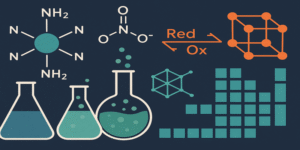Philosophy, the study of fundamental questions about existence, knowledge, values, reason, mind, and language, serves as a cornerstone of intellectual inquiry and critical thinking. It explores the principles and assumptions underlying human thought, culture, and society. Rooted in ancient civilisations such as Greece, India, and China, philosophy has evolved into a discipline that now encompasses a multitude of specialised areas. This article provides an overview of key topics within the field of philosophy, focusing on its primary branches: metaphysics, epistemology, ethics, logic, political philosophy, and aesthetics. We will also consider contemporary developments and interdisciplinary influences.
Metaphysics: The Nature of Reality
Metaphysics is the branch of philosophy concerned with the nature of reality and existence. Classical metaphysical questions include: What is being? Do abstract concepts like numbers exist independently of human minds? Is there a difference between mind and matter? Notable metaphysical frameworks include materialism (everything is physical), dualism (mind and body are distinct), and idealism (reality is fundamentally mental) (Loux & Zimmerman, 2005).
Aristotle was one of the first to formalise metaphysical inquiry, describing it as “first philosophy”—the study of “being as being” (Aristotle, Metaphysics). In modern philosophy, metaphysics explores issues such as free will, identity, time, and the existence of God. Recent scholarship also addresses metaphysical implications of quantum mechanics (Shuvo, Ahmed & Mahi, 2025).
Epistemology: The Study of Knowledge
Epistemology concerns itself with the nature, sources, limitations, and validity of knowledge. It asks: What is knowledge? How is it acquired? Can we ever truly know anything? Classical theories include empiricism (knowledge through sensory experience) and rationalism (knowledge through reason) (Audi, 2010).
Contemporary epistemology includes discussions on scepticism, the justification of beliefs, and the impact of cognitive biases. It also intersects with information theory and artificial intelligence, raising questions about what it means for machines to “know” (Botti, 2025). Interdisciplinary studies further connect epistemology with linguistics and cognitive science (Matzinger & Pleyer, 2025).
Ethics: The Pursuit of the Good Life
Ethics, or moral philosophy, investigates questions about what is right and wrong, good and bad. It is traditionally divided into three areas:
- Metaethics, which explores the nature of moral values and language,
- Normative ethics, which formulates moral rules and principles, and
- Applied ethics, which deals with specific moral issues like abortion, euthanasia, and environmental policy.
Foundational ethical theories include deontology (duty-based ethics, as in Kant), consequentialism (outcomes matter most, e.g., utilitarianism), and virtue ethics (character development, as in Aristotle) (Hursthouse, 1999). Contemporary applied ethics address issues in bioethics, AI ethics, and environmental stewardship (Alimirzaei, 2025).
Logic: The Structure of Reasoning
Logic is the study of the principles of valid inference and reasoning. It plays a foundational role in philosophical analysis, ensuring arguments are coherent and conclusions follow from premises.
Traditional syllogistic logic (Aristotelian) has evolved into modern symbolic and mathematical logic, which provides tools for formal reasoning in computer science and linguistics (Priest, 2008). Modal logic, relevant to discussions of necessity and possibility, is essential in metaphysics and philosophy of language.
Recent developments explore the application of fuzzy logic, quantum logic, and paraconsistent logics in modelling complex or contradictory phenomena (Galewska, 2025).
Political Philosophy: Justice and Power
Political philosophy explores the justification of political institutions, rights, laws, and justice. Classical texts such as Plato’s Republic and Hobbes’s Leviathan continue to inform contemporary debates on authority, democracy, and liberty.
Key questions include: What makes a government legitimate? What is justice? What are human rights? Influential modern thinkers include John Rawls, who formulated the theory of justice as fairness, and Robert Nozick, who defended libertarianism (Rawls, 1971; Nozick, 1974).
Recent discourse addresses global justice, feminism, postcolonialism, and the philosophy of race (Malone & Scarbrough, 2025). Topics such as surveillance, data privacy, and the ethical governance of AI also feature prominently (Xu, Peng & Wu, 2025).
Aesthetics: Philosophy of Art and Beauty
Aesthetics investigates the nature of beauty, art, and taste. It asks: What is art? What makes something beautiful? Are aesthetic values objective or subjective?
Classical perspectives, such as those of Kant and Hume, emphasise the importance of disinterested pleasure and the universality of aesthetic judgment. Modern aesthetics integrates cultural, feminist, and cognitive perspectives on art (Marchi, 2025).
Aesthetics also intersects with other disciplines like literature, visual arts, and digital media, particularly in exploring the experience of virtual and interactive art forms (Malone & Scarbrough, 2025).
Interdisciplinary and Contemporary Philosophy
Modern philosophy increasingly engages with disciplines such as neuroscience, linguistics, environmental science, and technology. For example, neurophilosophy examines the relationship between brain processes and consciousness, challenging Cartesian dualism.
In the environmental domain, philosophical inquiry considers human responsibility to future generations, non-human animals, and ecosystems, often drawing from indigenous worldviews and non-Western traditions (Xiao & Ren, 2025). Posthumanist philosophy critiques human-centric worldviews and explores alternative ontologies (Rife, 2025).
Philosophy of language has expanded with interest in semantic theory, discourse analysis, and metaphor theory (Zhou, 2025), while empirical phenomenology is gaining traction in pedagogy and psychology (Mortari, 2025).
Philosophy remains one of the most intellectually rich and foundational disciplines, underpinning inquiry in both the sciences and the humanities. Its primary branches—metaphysics, epistemology, ethics, logic, political philosophy, and aesthetics—offer tools for rigorous reasoning, ethical reflection, and critical analysis. Furthermore, contemporary philosophy thrives through its engagement with modern challenges and interdisciplinary frontiers, ensuring its relevance in an increasingly complex world.
References
Aristotle (1998) Metaphysics. Translated by H. Lawson-Tancred. London: Penguin Books.
Audi, R. (2010) Epistemology: A Contemporary Introduction to the Theory of Knowledge. 3rd ed. London: Routledge.
Botti, V. (2025) ‘Agentic AI and Multiagentic: Are We Reinventing the Wheel?’ arXiv preprint. https://arxiv.org/abs/2506.01463
Galewska, K. (2025) Semantyka nazw własnych w ujęciu kontrastywnym. Poznań: Adam Mickiewicz University Repository. https://repozytorium.amu.edu.pl/bitstreams/4a029bff-536d-4474-a85a-6dd09cfca090/download
Hursthouse, R. (1999) On Virtue Ethics. Oxford: Oxford University Press.
Loux, M. J. and Zimmerman, D. W. (2005) The Oxford Handbook of Metaphysics. Oxford: Oxford University Press.
Malone, E. and Scarbrough, E. (2025) ‘An Introduction to Contemporary Aesthetics’, PhilPapers. https://philpapers.org/rec/MALAIT-8
Marchi, V. (2025) ‘Review of Heidegger and Literary Studies’, Anglia. https://www.degruyterbrill.com/document/doi/10.1515/ang-2025-0027/html
Mortari, L. (2025) ‘The Method of Empirical Phenomenology’, SpringerLink. https://link.springer.com/chapter/10.1007/978-3-658-47518-5_3
Nozick, R. (1974) Anarchy, State, and Utopia. New York: Basic Books.
Rawls, J. (1971) A Theory of Justice. Cambridge, MA: Harvard University Press.
Rife, T. S. (2025) ‘Posthumanist Collaborations in Performance Studies’, Taylor & Francis. https://www.tandfonline.com/doi/full/10.1080/10462937.2025.2513871
Shuvo, A. A., Ahmed, J. and Mahi, I. J. (2025) ‘Non-locality in Quantum Mechanics’, SSRN. https://papers.ssrn.com/sol3/papers.cfm?abstract_id=5279033
Xiao, X. and Ren, H. (2025) ‘Research Hotspots and Trends in Zhuangzi’s Thought’, Advances in Humanities and Contemporary Studies. https://penerbit.uthm.edu.my/periodicals/index.php/ahcs/article/view/20009
Xu, Y., Peng, R. and Wu, J. (2025) ‘Emotional Perceptions of AIGC Animation’, Springer. https://link.springer.com/chapter/10.1007/978-3-031-93733-0_16
Zhou, X. (2025) ‘Visual Metaphors and Aesthetics’, JBE Platform. https://www.jbe-platform.com/content/journals/10.1075/cogls.00135.zho









